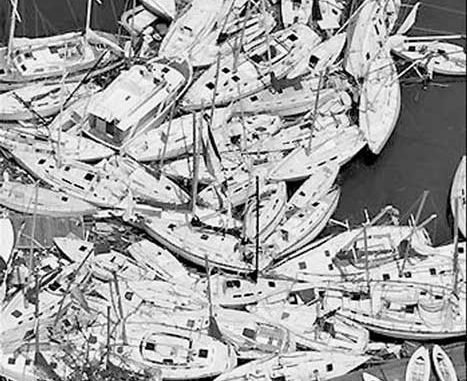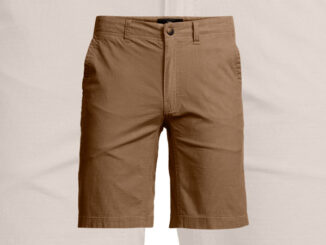
From humble beginnings, this team of young shooters from “down da bayou” has grown to produce some of the finest marksmen in the state.
Most of us have detailed plans for what we will do in the event that another hurricane heads our way. I’m sure these plans include boarding up and securing the house, stocking up on hurricane supplies and getting ready to evacuate if needed. What about your boat? Have you given any thought about hurricane preparedness for your boat? Katrina destroyed many thousands of boats in the Gulf Coast region. Some of those boats could have been saved if their owners had included them in their preparations.
Removing your boat from the path of the storm by taking it with you when you evacuate would be the ideal solution. If you choose to take this option, you should start preparing now by checking your rig thoroughly and preparing it for a long road trip.
The trailer is the most important part of your boat at this time, so be extra diligent in checking everything before a storm threatens. Check your trailer tire air pressure. The proper air pressure rating is marked on the tire. Make sure that you inflate the tires to their max rating.
Check your trailer wheel bearings. Jack up each wheel and try to shake the tire from side to side and spin the tire to listen for any noise coming from the bearing hubs. If either of these occur, you should remove the hubs, clean and inspect the bearings and, if needed, replace the bearings. New seals should be installed in the hubs and the bearings repacked with fresh grease.
Probably just as important as your hubs and bearings are the trailer lights. You will be traveling in heavy traffic, and you will want to make sure that your trailer lights, especially stop lights and turn signals, are working properly.
Next check your boat tie downs. Make sure you have sufficient tie downs in both the front and rear of your boat. Also make sure that the winch rope is in good shape.
Finally, be sure to securely stow away all loose gear. You wouldn’t want anything to blow out of your boat on the road and possibly cause an accident.
If you choose not to take the boat with you when you evacuate, take the time to prepare it for the bad weather that is coming. Just as you would prepare your house by picking up all of the loose objects in the yard and securing them so the wind does not use them as objects of destruction, you should do the same for your boat.
Storage covers and convertible tops should be folded and secured. High winds will shred these items and then use them to damage other parts of your boat.
All loose gear needs to be stowed in lockable compartments in your boat or in some other secure area of your house or garage.
Disconnect the battery cables. If you get enough water in your boat to cover the battery, the cables can short out and cause extensive damage to the rest of the wiring in your boat.
If at all possible, a secure place to store your boat such as a sturdy warehouse or garage would be your best protection, but in case you have to leave the boat exposed, place it in an area away from overhead dangers such as trees or power lines. Many boats that Katrina destroyed were not damaged due to flooding, but were crushed by falling trees and utility poles.
If your boat should be caught in a flood and is sunk, you will need to get that boat to a qualified mechanic as quickly as possible. Many outboard motors that were water damaged by Katrina could have been saved if they were attended to shortly after the storm. Once they set up for several days or weeks, the damage from the water becomes irreversible, and the engine is relegated to the scrap heap.
Finally, if you are foolish enough not to evacuate, you should prepare your boat as if your life depended upon it. Start by making sure that the fuel tank is full and you have extra outboard motor oil on board in case you have to evacuate by water.
Next, check your battery to be sure it is fully charged and will crank the outboard if needed. Start your engine and run it on the garden hose for several minutes to be sure everything is operational.
Keep the boat supplied with all the necessary safety equipment, such as life jackets, throw cushions and first-aid kit. Survival items such as bottled water, insect repellent, sunscreen and some non-perishable food items may be needed.
Be safe this hurricane season, and remember it is much better to evacuate and live to fish another day. If you have any questions about your boat, motor or trailer, you can e-mail me at hanktheboatdr@yahoo.com.


